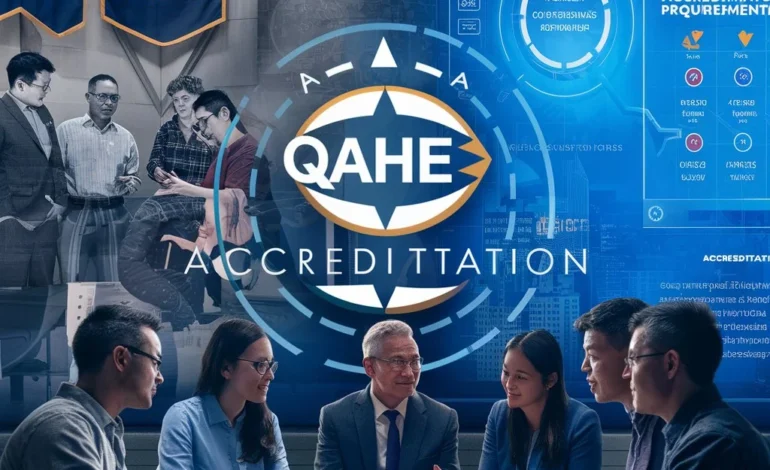Boost Your Institution’s Credibility with QAHE Programmatic Accreditation

In the competitive landscape of higher education, institutions need to demonstrate their commitment to quality and excellence. One way to achieve this is by obtaining programmatic accreditation from a reputable agency like the International Association for Quality Assurance in Pre-Tertiary & Higher Education (QAHE). QAHE programmatic accreditation is a mark of excellence that sets institutions apart from others, enhancing their reputation and credibility in the eyes of students, employers, and other stakeholders.
Islamic Azad University (IAU), UAE, Earns QAHE Programmatic Accreditation for Four Degree Programs
What is Programmatic Accreditation?
Programmatic accreditation is a rigorous process that evaluates and recognizes the quality of educational programs within an institution. It ensures that these programs meet international standards, are relevant to industry needs, and provide students with the knowledge and skills required to succeed in their chosen fields. QAHE programmatic accreditation is a voluntary process that involves a self-assessment by the institution, followed by an external review by QAHE’s Accreditation Committee.
The QAHE Advantage
QAHE is a non-governmental, independent quality assurance agency recognized by various national and international bodies, including the National Agency for Quality Assurance in Education & Research (Moldova), the Agency for Accreditation of Educational Programs & Organizations (Kyrgyzstan), and the Council on International Higher Education Supervision (Austria). With a robust accreditation process, QAHE provides institutions with a framework for continuous improvement, ensuring that their programs are aligned with industry expectations and best practices.
Also Read: How to Incorporate the Pillars of OFAC into an Effective Compliance Program?
Key Criteria for QAHE Programmatic Accreditation
To achieve QAHE programmatic accreditation, institutions must demonstrate excellence in four key areas: curriculum, faculty qualifications, aims and objectives, and academic resources. A well-designed, comprehensive curriculum that incorporates theoretical knowledge, practical applications, and opportunities for experiential learning is essential. Faculty members must possess relevant qualifications, expertise, and experience in their respective fields. Clear program objectives that align with industry needs and trends are also critical. Finally, institutions must have adequate academic resources, including classrooms, computer labs, library facilities, and counseling rooms, to support students’ academic pursuits and well-being.
The Accreditation Process
The QAHE programmatic accreditation process involves four steps. First, institutions must familiarize themselves with QAHE standards and criteria, reviewing the requirements and expectations for accreditation. Next, they must prepare a self-evaluation report, compiling a detailed report highlighting how their program meets each accreditation criterion. Including supporting documents such as curriculum outlines, faculty credentials, and assessment methods. QAHE’s Accreditation Committee then reviews the report and makes an accreditation decision. Finally, upon authorization, institutions receive an invoice to settle the annual programmatic authorization fee, and a certification is issued.
Benefits of QAHE Programmatic Accreditation
By obtaining QAHE programmatic accreditation, institutions can enhance their reputation and credibility, attract high-caliber students and faculty, improve program quality and relevance, increase employability and career prospects for graduates, and demonstrate their commitment to quality and excellence. QAHE programmatic authorization is a valuable asset for institutions seeking to differentiate themselves in a competitive market.
Conclusion
In today’s competitive higher education landscape, institutions need to demonstrate their commitment to quality and excellence. QAHE programmatic accreditation provides a robust framework for institutions to achieve this goal, enhancing their reputation, credibility, and student outcomes. By achieving QAHE accreditation, institutions can elevate their standing in the eyes of students, employers, and other stakeholders. Ultimately leading to a brighter future for their students and stakeholders.
Read More: Face Check ID Matters-8 Important Benefits to Discuss for Clarity









